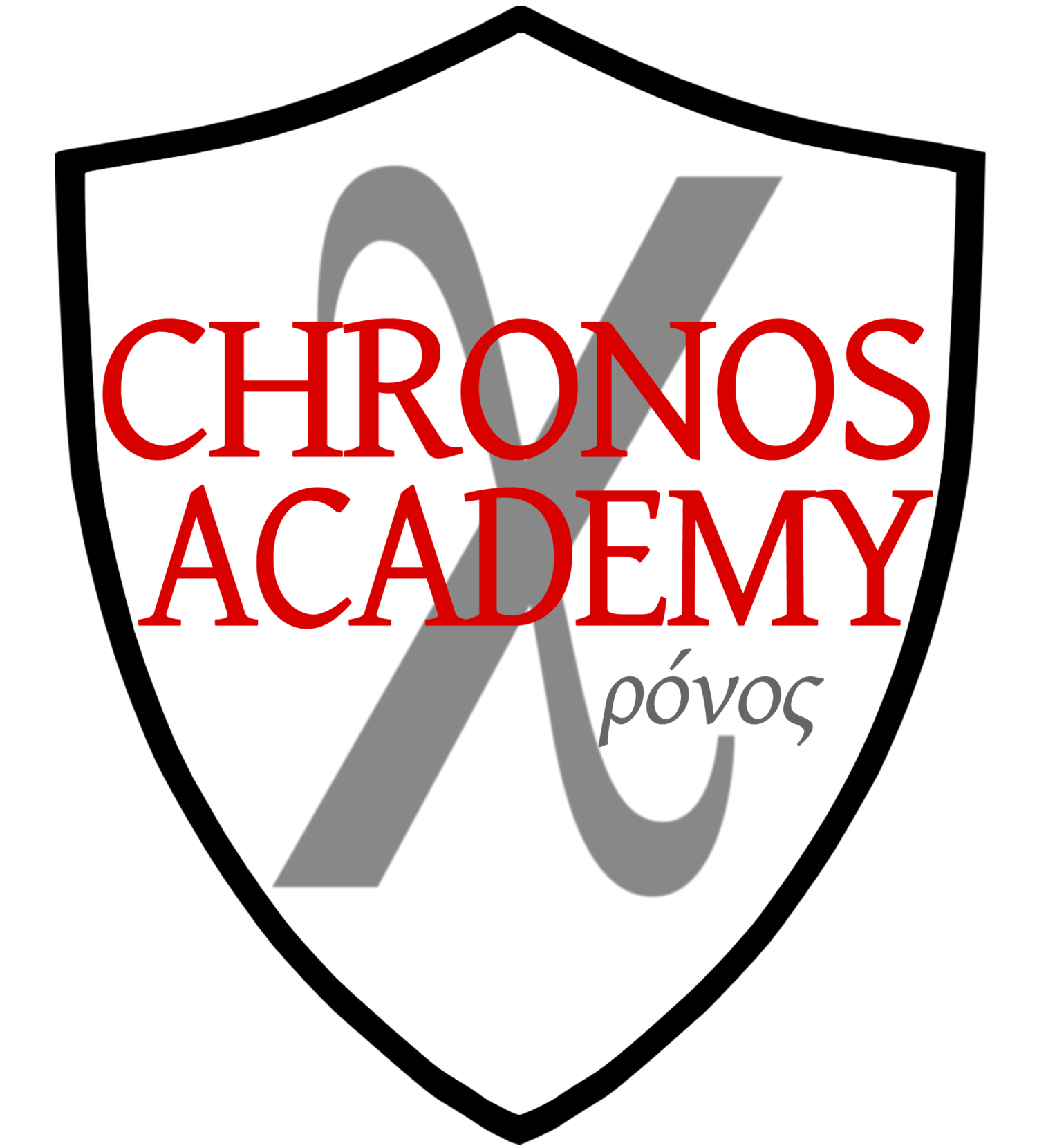Middle Ages Week 14
/Thursday Cohorts
Grammarians
PreK-4th graders
History: Memorize “In 1295, Marco Polo returned from Beijing. He published his book, The Marvels of the World, about his adventures.”
Learn about Marco Polo.
Read The Story of the World, Vol. 2, Chapter 22 and do the activities in the Activity Guide.
Geography: Draw Europe and label these countries of Western Europe:
Denmark
Germany
Austria
Liechtenstein
Switzerland
Italy
San Marino
Vatican City
Malta
Greece
Practice memorizing the countries with this game!
Science: Memorize "A salve is an ointment, a tincture is a drug dissolved in alcohol, and a poultice is a soft, moist mass of material used to promote healing of the skin."
Math: Memorize "Pascal's triangle is a configuration of the binomial coefficients used in the binomial theorem."
1
1 1
1 2 1
1 3 3 1
1 4 6 4 1
1 5 10 10 5 1
1 6 15 20 15 6 1
Greek: Memorize some new vocabulary and complete lesson 14 in your workbook.
ἡ γή the earth
ἡ σύναγωγή the synagogue
ἡ ἐξουσία the power
τό σημεῖον the sign
ἡ σοφία the wisdom
English:
An article identifies a noun rather than describing it: a, an, the
Investigate articles on Grammar Revolution.
Presentation: Prepare a presentation on one of these activities or another topic you’ve been learning and share with the class next week!
Writing Club (3-4th)
Medieval History-Based Writing Lessons: Complete Lesson 15, A Year to Remember: The Battle of Hastings.
Diagram Week 14 sentences.
Lower Dialecticians (5-6h grades)
Writing: Write a summary of the Marco Polo’s Marvels of the World. Pick 6-8 interesting articles, write a key word outline and one paragraph summary. Be sure to include dress ups: “ly,” strong verb, quality adjective, who/which clause, when/while/where class and vocabulary. Underline them and label them in the margin.
Presentation: Research and prepare a notecard keyword outline for your presentation this week. Don’t write it out word for word, and do bring a note card of your key word outline - you’ll forget what you learned! Here are some of the topics you picked in class:
Science - Hildegard von Bingen recommended boiling water. Good idea.
History - Mongolian Empire, Marco Polo. Travel with Marco Polo with National Geographic.
Art - Yuan painting. Look at all the amazing pictures in this book!
Math - al-Karaji and a video!
Philosophy - Ramanuja was a very important Hindu philosopher. He said, “What an individual pursues as a desirable end depends upon what he conceives himself to be.”
History: Memorize “In 1295, Marco Polo returned from Beijing. He published his book, The Marvels of the World, about his adventures.”
Learn about Marco Polo.
Read The Story of the World, Vol. 2, Chapter 22 and do the activities in the Activity Guide.
Geography: Draw Europe and label these countries of Western Europe:
Denmark
Germany
Austria
Liechtenstein
Switzerland
Italy
San Marino
Vatican City
Malta
Greece
Practice memorizing the countries with this game!
Science: Memorize "A salve is an ointment, a tincture is a drug dissolved in alcohol, and a poultice is a soft, moist mass of material used to promote healing of the skin."
Math: Memorize "Pascal's triangle is a configuration of the binomial coefficients used in the binomial theorem."
1
1 1
1 2 1
1 3 3 1
1 4 6 4 1
1 5 10 10 5 1
1 6 15 20 15 6 1
Greek: Memorize some new vocabulary and complete lesson 14 in your workbook.
ἡ γή the earth
ἡ σύναγωγή the synagogue
ἡ ἐξουσία the power
τό σημεῖον the sign
ἡ σοφία the wisdom
English:
An article identifies a noun rather than describing it: a, an, the
Investigate articles on Grammar Revolution.
Diagramming: Choose sentences 1-10 or 11-12 challenge sentences below. Complete question confirmation & label each word in the sentence, state structure, purpose & patterns for each and diagram Week 14 sentences:
1. Be Muslim, but expand the Arab Empire.
2. Seem mathematical, and discover zero on a stone in Cambodia.
3. Become wealthy, and trade salt in Ghana!
4. Be brave like Charles Martel, and defeat Emir Abd al Rahman near Tours.
5. Be holy and imperial, become Charlemagne, the first Holy Roman Emperor.
6. Raid Europe by sea, so be a viking.
7. Be an explorer, and write a book about your travels.
8. Be a salve, and comfort others.
9. Be a mathematician, and calculate Pascal's triangle.
10. Be a cartographer, and map Western Europe.
11. In 1295, Marco Polo returned from Beijing, and then he published his book, The Marvels of the World, about his adventures.
12. A salve is an ointment, but a tincture is a drug dissolved in alcohol, and a poultice is a soft, moist mass of material which is used to promote healing of the skin.
Upper Dialecticians 7th-9th Graders
From our session Thursday 12/14 - Please read this, watch the videos and choose one topic for your presentation and one for your writing assignment. BEFORE Monday 1/8/18:
Science - Hildegard von Bingen recommended boiling water. Good idea.
History - Mongolian Empire, Marco Polo. Travel with Marco Polo with National Geographic.
Art - Yuan painting. Look at all the amazing pictures in this book!
Math - al-Karaji and a video!
Philosophy - Ramanuja was a very important Hindu philosopher. He said, “What an individual pursues as a desirable end depends upon what he conceives himself to be.”
Writing: Choose any one of these topics. Write a really great essay about it. Pick two specific ideas about your topic to write about. Explain why you picked those two and how they relate to one another. Email or text me the moment you read this: right now.
Review these topics:
History: Memorize “In 1295, Marco Polo returned from Beijing. He published his book, The Marvels of the World, about his adventures.”
Learn about Marco Polo.
Read The Story of the World, Vol. 2, Chapter 22 and do the activities in the Activity Guide.
Geography: Draw Europe and label these countries of Western Europe:
Denmark
Germany
Austria
Liechtenstein
Switzerland
Italy
San Marino
Vatican City
Malta
Greece
Practice memorizing the countries with this game!
Science: Memorize "A salve is an ointment, a tincture is a drug dissolved in alcohol, and a poultice is a soft, moist mass of material used to promote healing of the skin."
Math: Memorize "Pascal's triangle is a configuration of the binomial coefficients used in the binomial theorem."
1
1 1
1 2 1
1 3 3 1
1 4 6 4 1
1 5 10 10 5 1
1 6 15 20 15 6 1
Greek: Memorize some new vocabulary and complete lesson 14 in your workbook.
ἡ γή the earth
ἡ σύναγωγή the synagogue
ἡ ἐξουσία the power
τό σημεῖον the sign
ἡ σοφία the wisdom
English:
An article identifies a noun rather than describing it: a, an, the
Investigate articles on Grammar Revolution.
Diagramming: Choose sentences 1-10 or 11-12 challenge sentences below. Complete question confirmation & label each word in the sentence, state structure, purpose & patterns for each and diagram Week 14 sentences:
1. Be Muslim, but expand the Arab Empire.
2. Seem mathematical, and discover zero on a stone in Cambodia.
3. Become wealthy, and trade salt in Ghana!
4. Be brave like Charles Martel, and defeat Emir Abd al Rahman near Tours.
5. Be holy and imperial, become Charlemagne, the first Holy Roman Emperor.
6. Raid Europe by sea, so be a viking.
7. Be an explorer, and write a book about your travels.
8. Be a salve, and comfort others.
9. Be a mathematician, and calculate Pascal's triangle.
10. Be a cartographer, and map Western Europe.
11. In 1295, Marco Polo returned from Beijing, and then he published his book, The Marvels of the World, about his adventures.
12. A salve is an ointment, but a tincture is a drug dissolved in alcohol, and a poultice is a soft, moist mass of material which is used to promote healing of the skin.
Tuesday classes
Book Club: Read at least 20 pages in your Medieval library book, annotate on sticky notes as you read, then make notes in your Book Club journal (title, author, copyright date, main characters, plot summary & new vocabulary) and be ready to present on what you’ve read so far. Tell us how one of the characters in your book is similar to a character in White Stag or Beowulf or One Thousand One Arabian Nights or Robin Hood.
MAKE: History: We’ll read Story of the World chapter 22 in class and make a Chinese hand canon.
Drawing out Arithmetic: In class we’ll finish constructing the regular pentagon in Proposition IV.11
Greek: Complete & study lesson 14 for our quiz! We’ll start Greek Workbook Lesson 15.
Wednesday classes
Make Science: In class we’ll learn more about Hildegard von Bingen and make a tincture.
Math Club: Learn about Ibn al-Karaji, binomial theorem and Pascal’s triangle
Art Appreciation: Create a Mihrab (prayer niche) in triorama.
Writing Club: DUE ON JANUARY 10, 2018
Upper Dialecticians (7-9) and Lower Dialecticians (5-6)
IEW Medieval History-Based Writing Lessons:
Complete Lesson 15, “A Year to Remember: The Battle of Hastings”. Read “The Assignment” on page 101. Do your Keyword Outline after reading the source text on page 102 Use the checklist on pate 104 to be sure you have included appropriate structure and all of the elements style for this week. Try to include some vocabulary words in your essay! Be ready to present from your final draft.
Fix it! Grammar:
Complete Week 13 in your book and copy the corrected paragraph into your notebook. Review the Grammar Cards in the back of your notebook. They really help! Suggestion: use two different colored pencils to correct the punctuation and parts of speech. Review in preparation for next week!
Upper Grammarians (3-4):
IEW Medieval History-Based Writing Lessons:
Complete Lesson 15, “A Year to Remember: The Battle of Hastings”. Read “The Assignment” on page 101. Do your Keyword Outline after reading the source text on page 102 Use the checklist on pate 104 to be sure you have included appropriate structure and all of the elements style for this week. Try to include some vocabulary words in your essay! Be ready to present from your final draft.
Fix it! Grammar:
Complete Week 13 in your book. Copy the corrected paragraph into your notebook. Review the Grammar Cards in the back of your notebook. They really help! Suggestion: use two different colored pencils to correct the punctuation and parts of speech. Review in preparation for next week!



